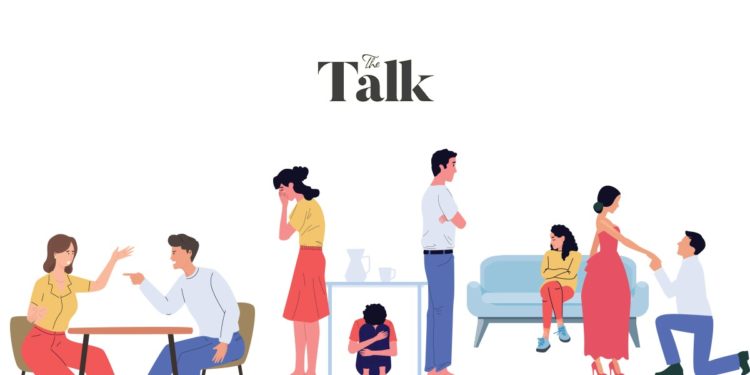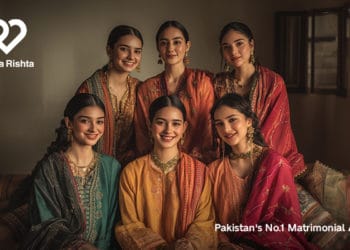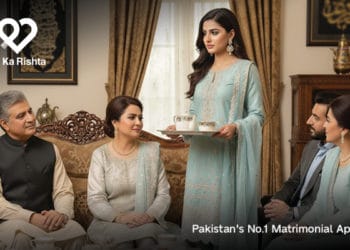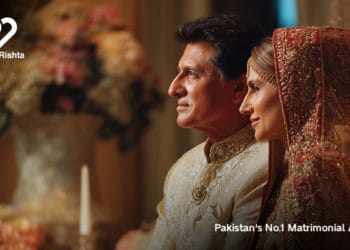Polygamy or multiple marriages is not something that is new to Islam. It has been around for centuries, and it is still practiced by many Muslims today. Polygamy is allowed in Islam, but it is not compulsory. A man can have up to four wives, as long as he treats them all equally and fairly.
Verse 4:3 states: “If ye fear that ye shall not be able to deal justly with the orphans, marry women of your choice, two, three, or four; but if ye fear that ye shall not be able to deal justly (with them), then only one… that will be more suitable, to prevent you from doing injustice.”
Even though it is highly disfavored in Pakistani society, there has been a surge in the rise of men going for second marriages. But the reasons behind it vary and it’s high time it gets addressed.
Unfortunately, there are many cases of men taking on a second wife while still being married to their first wife. This can often be because the man was forced into an incompatible marriage the first time around and is now looking for love in his second marriage. While this may seem like a selfish act, it is important to understand the cultural context in which these marriages take place. For many Muslim men, their first marriage is arranged by their families, and they have no say in who they marry. This can lead to them being paired with someone who they are not compatible with and who they do not love. Incompatibility can come from various aspects, like the different lifestyles of two different beings or how one person likes certain things and another doesn’t. In such cases, it is understandable why the man would want to seek out a second marriage where he has more compatibility with the person he marries and where he might actually be able to find true love.
Another reason why a Muslim man might go for a second marriage is that he could be looking for love or companionship, or simply because he feels that he can provide better for two wives than one the reason why polygamy was actually brought into being by Islam is to provide shelter for widows, divorcees, and orphans. A few other reasons include the societal pressure to deal with one’s wife’s infertility and to be able to have offspring to carry his bloodline.
In 2017, a lower court in Lahore decided against a man who remarried without the permission of his first wife. Also, the decision was made keeping in mind the security of the second wife. Men often marry for the second time secretly, which then deprives the second wife of her legal marital and inheritance rights. While the law of the country requires the consent of the first wife to allow her husband to go for the second wife, the Shari’ah does not.
According to Sheikh M. S. Al-Munajjid, a notable Saudi Muslim educator and author:
“It is not necessary for the husband to obtain the consent of his first wife if he wants to take a second wife, but it is good manners and courtesy to deal with her in such a way that any wounded feelings are minimized.”
Looking for love outside of their marriages because they were forced into an incompatible match by their parents puts a strain on the already fragile institution of marriage in Pakistan and can lead to infidelity and divorce.
“Do not prevent them from marrying their husbands when they agree between themselves in a lawful manner.” (2:232)
This Quran ayah emphasizes the freedom of choice in a life partner that Allah Almighty has given. Furthermore, it is apparent from this ayah that no one has the authority to force men or women to marry someone they do not want to marry. As a result, the notion that the marriage of women in Islam is based on the decision of parents or male members of the family is incorrect, and they enjoy entire freedom in this regard from Allah Almighty.
A Hadith by “Abu Dawood” also states:
“When one of you seeks a woman in marriage, and then, if he is able to have a look at whom he wishes to marry, let him do so.” (Dawood)
Pakistani parents need to be more mindful of their son’s or daughter’s compatibility when arranging a marriage. They should take into account the couple’s personality, values, and interests. Compatibility is the key to a happy and successful marriage. If a couple is compatible, they will be able to weather the challenges that life throws at them and emerge even stronger. However, if a couple is incompatible, they will likely struggle and may even end up getting divorced.
Pakistani society needs to move away from the outdated belief that arranged marriages are always best. While arranged marriages can work out well, they are not always the best option. Sometimes, it is better for couples to meet each other organically and then decide if they want to get married. Pakistan’s first matrimonial app, Dil Ka Rishta, encourages men and women to make their own choices when it comes to finding a life partner. The app gives users the ability to search for potential partners anonymously, without revealing their personal information while going through the potential matches. This way, users can feel safe and secure while using the app, knowing that their privacy is being respected.
The app allows users to set up a profile that includes information about themselves and their preferences, such as caste, sect, age, education, and occupation, as well as a broad list to tick off their preferences for what they are looking for in a partner, which helps them find the most compatible match. This app is encouraging a shift in the mindsets of typical conventional social values and breaking norms in the existing society and its ways.













